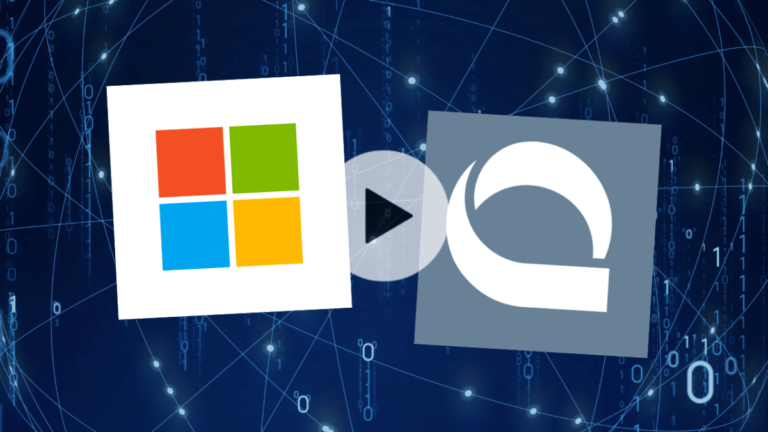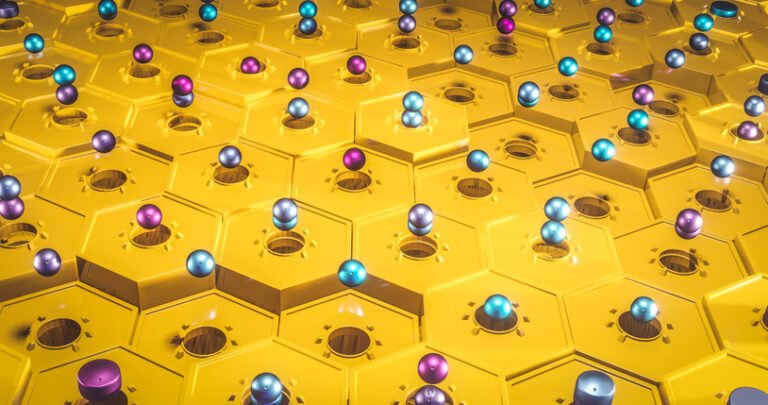
The tech world is incredibly focused on AI and its applications today, but artificial intelligence is hardly the only place where progress is being made.
If you want to get really into the weeds, pay attention to the progress that quantum computing is making, as made evident recently by an announcement from Microsoft and Quantinuum.
The pair of companies made what TechCrunch described as a “major breakthrough in quantum error correction,” which could make quantum computing systems far more usable than before.
The gist is that they encoded several physical qubits into a single logical qubit, which made it easier to detect and correct errors.
The error rate in quantum computing is a material issue to the technology’s performance, making the news that the two companies managed “run more than 14,000 experiments without a single error” pretty big news.

Microsoft and Quantinuum today announced a major breakthrough in quantum error correction.
This new system also allowed the team to check the logical qubits and correct any errors it encountered without destroying the logical qubits.
This, the two companies say, has now moved the state-of-the-art of quantum computing out of what has typically been dubbed the era of Noisy Intermediate Scale Quantum (NISQ) computers.
The physical qubits are entangled together so that it becomes possible to detect an error in a physical qubit and fix it.
Now, Microsoft and Quantinuum argue that their new hardware/software system demonstrates the largest gap between physical and logical error rates, improving on using only physical qubits by up to 800x.

The market for high-level quantum computer science — which applies quantum principles to manage complex computations in areas like finance and artificial intelligence — appears to be quickening its pace.
In the latest development, a startup out of San Sebastian, Spain, called Multiverse Computing is announcing that it has raised €25 million (or $27 million) in an equity funding round led by Columbus Venture Partners.
The funding, which values the startup at €100 million ($108 million), will be used in two main areas.
“Multiverse’s exceptional team will soon apply their unparalleled capability to deliver quantum and quantum-inspired software solutions also within the life sciences and biotechnology markets, where Columbus Venture Partners will help to identify unmet market needs and high-profile industrial partners,” Javier Garcia, a partner at Columbus Venture Partners, in a statement.
Others competing in the same space include the Alphabet spinout Sandbox AQ, Quantum Motion, and Classiq.

The five finalists to emerge from the Four Years From Now 2024 pitch competitionLong ago Mobile World Congress, which we’ve been covering all week, absorbed a side event for startups, the idiosyncratically named “Four Years From Now”.
Thus, out of hundreds of startups that applied and pitched, five finalists were selected by a panel of industry experts and investors after pitching their projects on stage.
Here’s a quick run-down of the five finalists to emerge from the competition.
The company is from South Korea and has raised $21.3 million to date.
WHISPPThis “Assistive Voice Tech and Calling App” was covered by TechCrunch last January.

Apple announced today it is upgrading iMessage’s security layer to post-quantum cryptography, starting in iOS and iPadOS 17.4, macOS 14.4, and watchOS 10.4.
The technology giant said that in the coming years, quantum computers will be able to break today’s cryptography standards.
That’s why Apple said it is changing how end-to-end encryption works with iMessage without the need for quantum-level processing power.
Apple and other companies believe future quantum computers — capable of exponentially faster computations — could break today’s encryption standards.
End-to-end messaging app Signal last year upgraded to post-quantum encryption algorithms to prevent future quantum-based decryption attacks.

Just when you thought the hype about room-temperature superconductors was over, it’s not.
Room-temperature superconductors, if one is ever found and independently confirmed, could revolutionize everything from electricity transmission to computing, electric vehicles, MRI machines, maglev trains and more.
Lately, claims of room-temperature superconductivity seem to be blooming like flowers after a rainstorm.
In the last year alone, three high-profile cases were either debunked, retracted or seriously doubted.
Researchers who TechCrunch+ spoke with were skeptical that this new material is a room-temperature superconductor.

Sandbox AQ, the AI and quantum firm spun out of Google parent company Alphabet in 2022, has acquired Good Chemistry, a Vancouver-based quantum and computational chemistry startup, for an undisclosed sum.
Good Chemistry’s platform lets chemistry developers build chemical simulation apps and workflows using algorithms in quantum chemistry and machine learning as well as quantum computing.
“[Tapping] the broader Sandbox AQ reach and domain expertise will supercharge the capabilities of our platform.”As part of the acquisition, Sandbox AQ says that it’ll integrate Good Chemistry’s software, Qemist Cloud and Tangelo, into its enterprise software portfolio.
Qemist lets user take advantage of quantum chemistry through simulation, while Tangelo allows them to conduct chemistry experiments across quantum cloud providers and hardware devices.
Good Chemistry is Sandbox’s second acquisition.

Now, before you get too excited about the “quantum” part of “Azure Quantum Elements” (and why wouldn’t you — it’s in the name, after all), let’s get this out of the way first: No quantum computer was used in this project.
Azure Quantum Elements, which launched last summer, combines AI and traditional high-performance computing (HPC) techniques into what is essentially a workbench for scientific computing, with the promise of providing access to Microsoft’s quantum supercomputer in the future.
Krysta Svore, who leads Microsoft Quantum, told me that the overall idea here was to see how far the team could push what is currently available in Azure Quantum Elements (AQE) — and especially the AI accelerator — to advance materials discovery.
After that, the researchers used existing HPC techniques to identify those 18 promising candidates to focus on.
And while the quantum computing community continues to push the state of the art ahead at a steady pace, we’re still at least a few years away from seeing a quantum computer that is actually useful.

Microsoft today announced that it has worked with the U.S. Department of Energy’s Pacific Northwest National Laboratory (PNNL) to use its Azure Quantum Elements service to whittle down millions of potential new battery materials to only a few — with one of them now in the prototype stage.
Now, before you get too excited about the ‘quantum’ part of ‘Azure Quantum Elements’ (and why wouldn’t you — it’s in the name, after all), let’s get this out of the way first: no quantum computer was used in this project.
Azure Quantum Elements, which launched last summer, combines AI and traditional high-performance computing (HPC) techniques into what is essentially a workbench for scientific computing, with the promise of providing access to Microsoft’s quantum supercomputer in the future.
Krysta Svore, who leads Microsoft Quantum, told me that the overall idea here was to see how far the team could push what is currently available in Azure Quantum Elements (AQE) — and especially the AI accelerator — to advance materials discovery.
And while the quantum computing community continues to push the state of the art ahead at a steady pace, we’re still at least a few years away from seeing a quantum computer that is actually useful.

Nvidia DGX offers a powerful orchestration platform that bridges the gap between classical and quantum computing, making it easy to control and operate quantum processors. This launch of Nvidia DGX…













